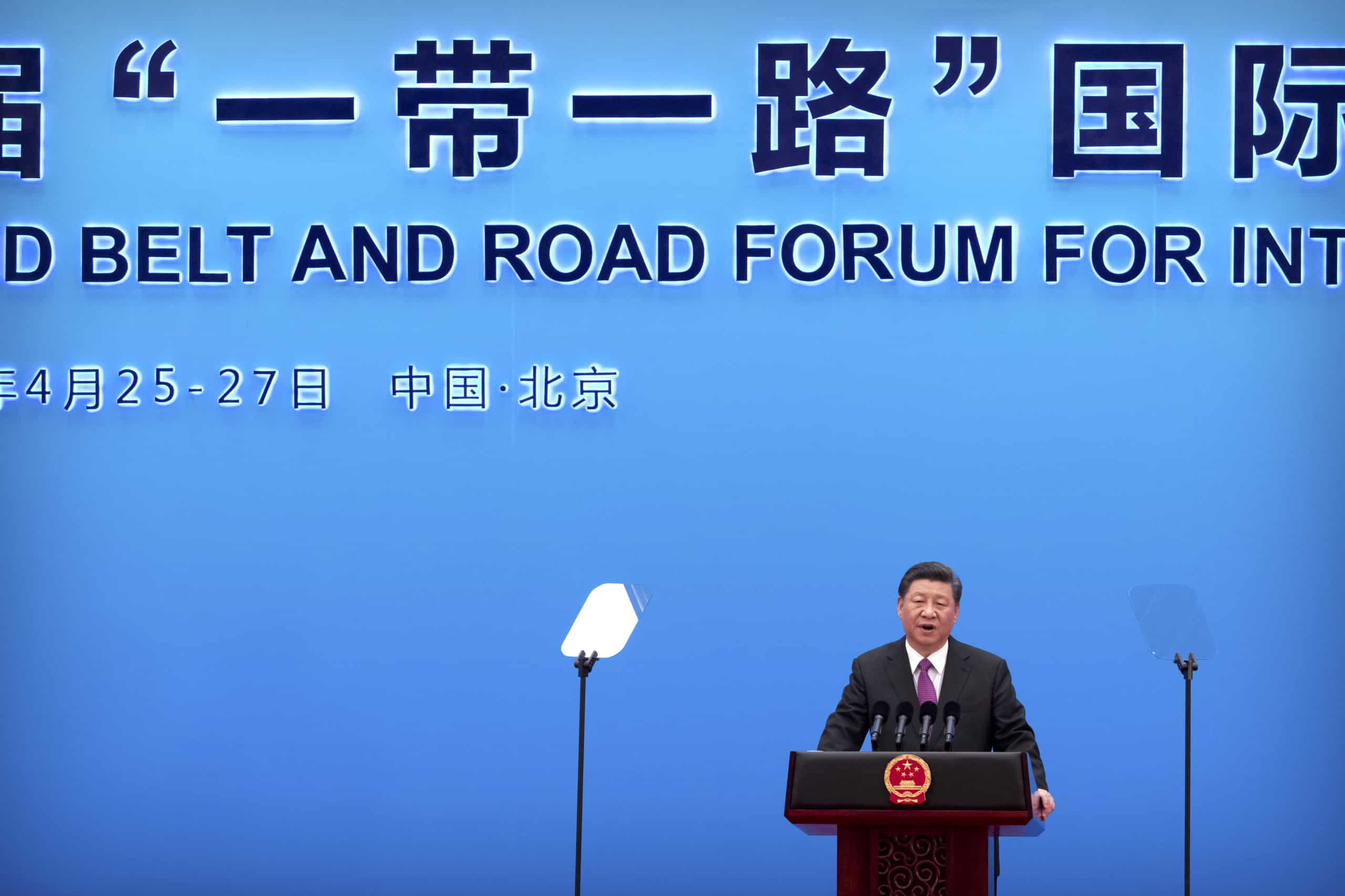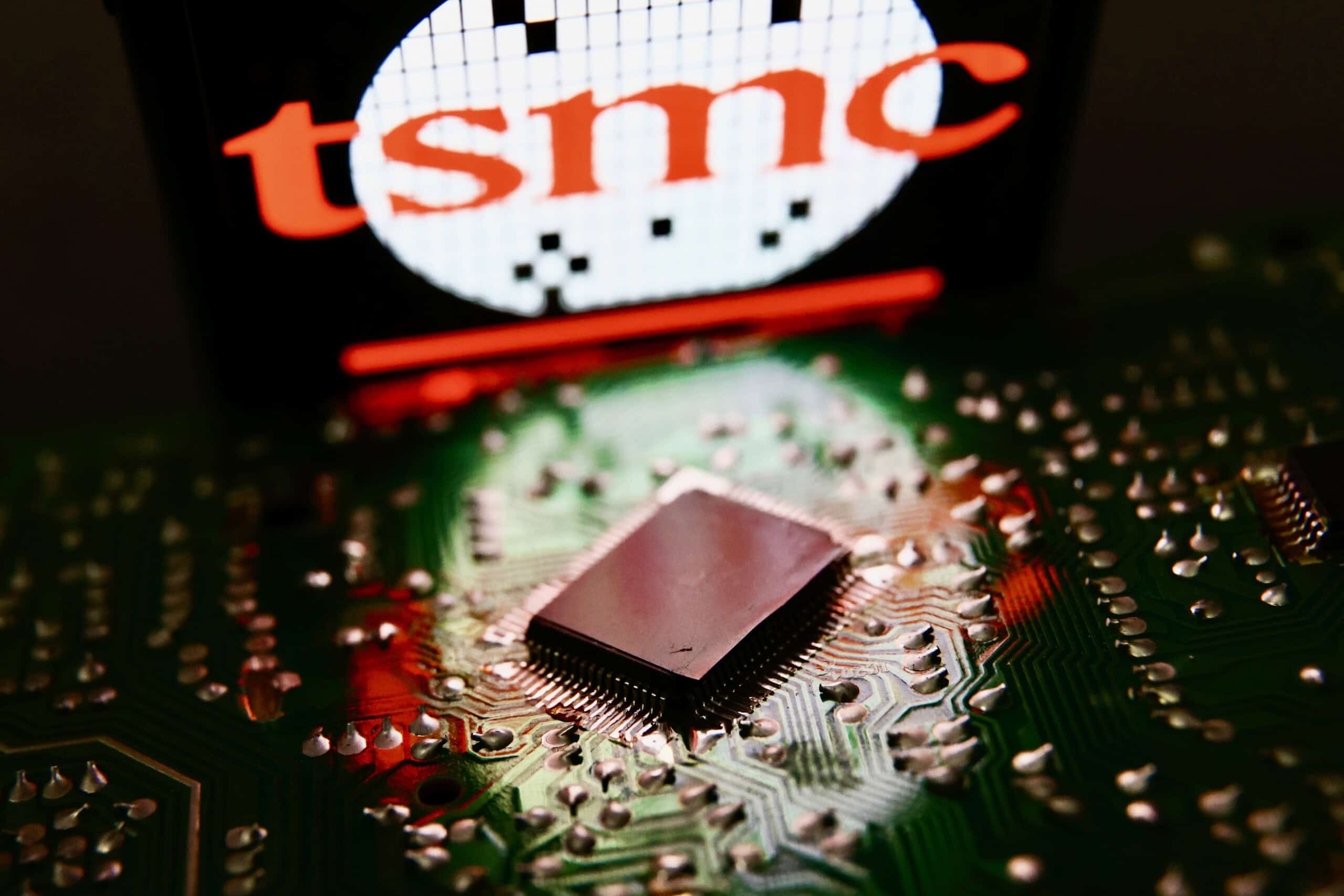
Credit: Mark Schiefelbein/AP Images
China is building a global empire of debt. Since 2005, it has invested over $2 trillion overseas, including hundreds of billions of loans for projects that would struggle to get financing from private lenders. When these enormous, risky infrastructure projects don’t pay off — as often happens — recipient countries can face debt distress and become vulnerable to coercion.
In 2017, the United States National Security Strategy named “predatory” Chinese debt diplomacy as a threat to the national interest. For the last three years, senior Trump administration officials have crisscrossed the world chiding other countries for joining Xi Jinping’s One Belt One Road initiative (OBOR) and lecturing them that cooperation with China doesn’t serve their interests. When Italy joined OBOR last year, the National Security Council tweeted, “Endorsing [OBOR] lends legitimacy to China’s predatory approach to investment and will bring no benefits to the Italian people.”
But the Trump administration misdiagnosed the challenge. True, OBOR is a campaign to put China at the center of the international political and economic order and rejuvenate the country’s lost imperial glory. True, a rising China is trying to use its newfound wealth to win friends and influence other countries. Indeed, most rising great powers in modern history have used similar strategies — including the United States, which practiced “dollar diplomacy” in Latin America for decades in the early 20th century. But this is as obvious to the rest of the world as it is to Washington. The more interesting question is why, if China’s methods are really so predatory and the benefits of its deals so one-sided, it keeps finding so many willing partners. Why do countries like Italy, Zambia, Ecuador, and Sri Lanka choose to put themselves at the mercy of Chinese creditors, knowing that they run the risk of falling under Beijing’s political control?
Political elites in the over 130 countries that have signed up for OBOR are not simpletons. They are highly sophisticated, often self-interested actors who know that all foreign money comes with strings attached. They recognize that over the long term, China’s rise in the international system will inevitably weaken the relative power of the United States. When they agree to accept Chinese loans and investments, they take for granted that these deals have a political dimension, too. When they sign documents pledging support for “win-win cooperation,” “harmonious co-existence,” and other slogans, they know that they are making symbolic concessions.

In dozens of interviews for my recent book, One Belt One Road: Chinese Power Meets the World, senior officials in OBOR countries on four continents told me why: OBOR is a format for establishing a long-term mutually beneficial relationship with Beijing. Individual projects are like down payments on this relationship; whether or not they make money is often beside the point.
To appreciate the long-term political calculus of this dynamic, one must look past the headlines. Since national leaders and ruling political parties often see OBOR membership as a way to get implicit Chinese support to stay in power at home, opposition leaders are often fiercely opposed. As a result, many countries have had vehement domestic debates about Chinese megaprojects, to include protests and strikes at several OBOR project sites. But in the seven years since OBOR was first announced, these countries have undergone dozens of transfers of power, and the only countries to have permanently repudiated their affiliations are India, which has been fighting with China over disputed border territory, and the Maldives, an archipelago nation heavily influenced by India with a population less than that of Mesa, Arizona.
This indicates that, contrary to conventional wisdom, China has become highly skilled at managing transfers of power in the countries where it does business. Opposition politicians often oppose OBOR megaprojects because they see them as a tool for ruling elites to align their incentives with Beijing in order to stay in power. But when they take power themselves, the same logic starts to work in their favor. For example, when Mahathir Mohamad came to power in Malaysia in 2018, he first lambasted China for doing corrupt deals with his predecessor and bargained hard to renegotiate his country’s OBOR contracts. China offered some cosmetic changes that he could sell as a win back home, and in a matter of months Mahathir had become even more enthusiastic than his predecessor about Malaysia’s participation in the initiative.
The U.S. response to OBOR has been predicated on the narcissistic assumption that other countries are also threatened by China’s rise. But small countries have more bargaining opportunities in a bipolar world than a unipolar one.
Apart from domestic politics, small countries also have geopolitical reasons to keep good relations with China: it gives them more leverage over their rivals or adversaries. Russia saw joining OBOR as a way to show that it had options after the 2014 Ukraine crisis soured relations with the West. The Central Asian republics wanted a counterweight against Russia. Greece wanted an ally in its negotiations with its European creditors, some of which wanted to expel it from the Eurozone. Iran saw a potential lifeline from crippling nuclear sanctions. From South Korea to Tanzania, nearly every senior official I have interviewed in OBOR recipient countries has offered or acknowledged some version of this argument.
Small wonder the rest of the world does not take U.S. officials very seriously when they call Chinese investments “predatory.” The U.S. response to OBOR has been predicated on the narcissistic assumption that other countries are also threatened by China’s rise. But small countries have more bargaining opportunities in a bipolar world than a unipolar one. It can be dangerous to have two superpowers competing for your affection and loyalty — but it can also be very lucrative.
By fixating on China’s methods and motives and amplifying every tiny problem with OBOR projects overseas, American commentators have missed the real story. OBOR is not just a vehicle for China to peddle cheap financing. It’s the name China has given to a more insidious, implicit type of partnership: the promise of a geopolitical patronage relationship that pays off for elites on both sides. In 2021, OBOR is likely to grow more sophisticated and high-tech, pivoting from capital-intensive traditional infrastructure to a narrower focus on public health, digital services, and green tech. The lesson for the incoming Biden administration is that it’s not enough to expose China’s neo-imperial ambitions, as Trump’s team did. If Washington wants to compete effectively, it will need to learn to see China through others’ eyes and acknowledge that Beijing by and large isn’t preying on victims; it’s attracting willing partners. Only then does it have a shot at making a better counteroffer.

Eyck Freymann is the author of One Belt One Road: Chinese Power Meets the World (November 2020) and Director of Indo-Pacific at Greenmantle, a macroeconomic and geopolitical advisory firm.



